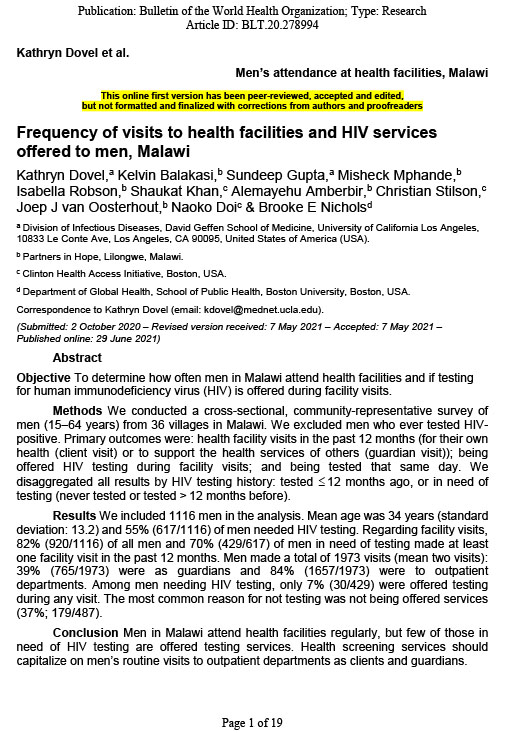To determine how often men in Malawi attend health facilities and if testing for human immunodeficiency virus (HIV) is offered during facility visits.
We conducted a cross-sectional, community-representative survey of men (15–64 years) from 36 villages in Malawi. We excluded men who ever tested HIV-positive. Primary outcomes were: health facility visits in the past 12 months (for their own health (client visit) or to support the health services of others (guardian visit)); being offered HIV testing during facility visits; and being tested that same day. We disaggregated all results by HIV testing history: tested ≤ 12 months ago, or in need of testing (never tested or tested > 12 months before).
We included 1116 men in the analysis. Mean age was 34 years (standard deviation: 13.2) and 55% (617/1116) of men needed HIV testing. Regarding facility visits, 82% (920/1116) of all men and 70% (429/617) of men in need of testing made at least one facility visit in the past 12 months. Men made a total of 1973 visits (mean two visits): 39% (765/1973) were as guardians and 84% (1657/1973) were to outpatient departments. Among men needing HIV testing, only 7% (30/429) were offered testing during any visit. The most common reason for not testing was not being offered services (37%; 179/487).
Men in Malawi attend health facilities regularly, but few of those in need of HIV testing are offered testing services. Health screening services should capitalize on men’s routine visits to outpatient departments as clients and guardians.
